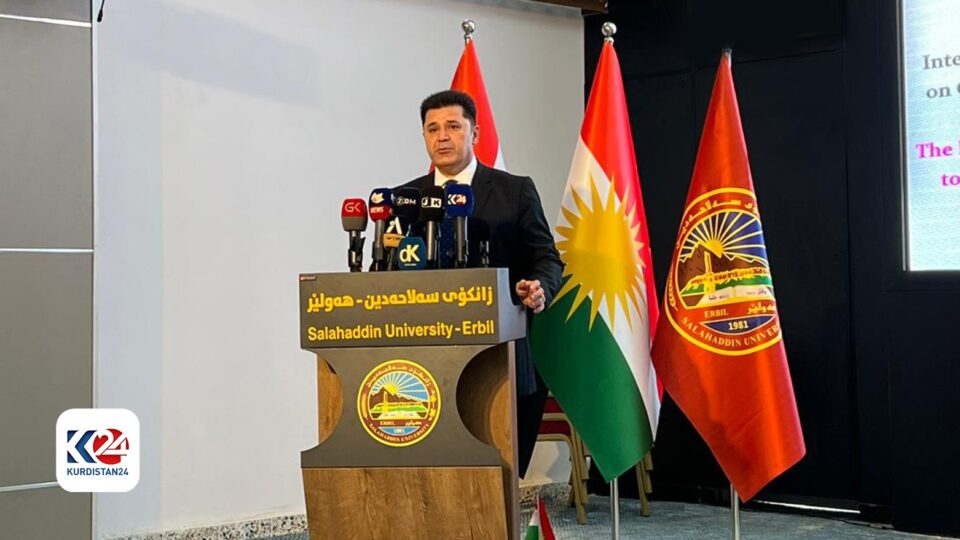Sema
The Coordinator of International Recommendations for the Kurdistan Region announced that since 2014, the Kurdistan Regional Government (KRG) has been actively working to secure international recognition of the Yazidi genocide.
Today, Monday, September 16, 2024, Dindar Zebari, the Coordinator of International Recommendations for the Kurdistan Region, announced at a press conference that this event was held in collaboration with Salahaddin University, North Justice Watch (NJW), the Rabe Organization, and Green Desert Organization, focusing on genocide and crimes against humanity.
In his opening speech, Zebari highlighted that after the genocidal atrocities and inhumane acts committed against the Yazidi Kurds, the KRG made substantial efforts to achieve justice, safeguard fundamental human rights, and secure compensation for the victims of these international crimes. Due to these efforts, more than 10 influential countries and various international organizations and institutions have recognized the crimes against the Yazidis as genocide.
Dindar Zebari emphasized that to ensure justice for all victims, regardless of religion, nationality, or sect, it is crucial to establish a unified mechanism for holding perpetrators accountable for international crimes. The KRG continues its efforts to gather evidence, conduct investigations, and ensure fair trials for ISIS criminals, alongside seeking compensation for victims of terrorism and their families.
Regarding the KRG’s coordination with international bodies, Zebari revealed that after the United Nations Investigative Team to Promote Accountability for Crimes Committed by Da’esh/ISIL (UNITAD) was established, the KRG collaborated with them to investigate witnesses and terrorists, and to implement a project documenting ISIS crimes through advanced technology. This project, aimed at prosecuting terrorists, has documented 24,965 files and 408,540 pages. UNITAD has also provided psychological and social support, contributing to the treatment and rehabilitation of Yazidi survivors.
Zebari noted that after the ISIS attacks, the Kurdistan Region sheltered more than two million refugees and internally displaced persons, with 730,930 people still residing in the region, many of whom are Yazidis. Rescuing and rehabilitating these individuals remains a priority for the KRG. To date, 3,579 individuals have been rescued, and the KRG continues to provide monthly assistance to them. Survivors receive psychological and social support and are registered at the psychological treatment center in Duhok.
Additionally, over 1,200 survivors have been sent to Germany for psychological treatment, thanks to the KRG’s initiatives.
The conference was attended by representatives from the Canadian Consulate, members of the Kurdistan Parliament, the Ministry of Higher Education and Scientific Research, the Directorate of Coexistence at the Ministry of Endowments and Religious Affairs, the United Nations Assistance Mission for Iraq (UNAMI), the United Nations High Commissioner for Refugees (UNHCR), UNICEF, the Lalish Cultural and Social Foundation, the Independent Human Rights Commission, the Directorate of the Cultural Center in Duhok, the High Council for Women and Development, Hengaw Organization, Kurdistan Women’s Union, DCV, CFI, Emma Organization, Aviar Organization, Kiniat, and Nupel.

